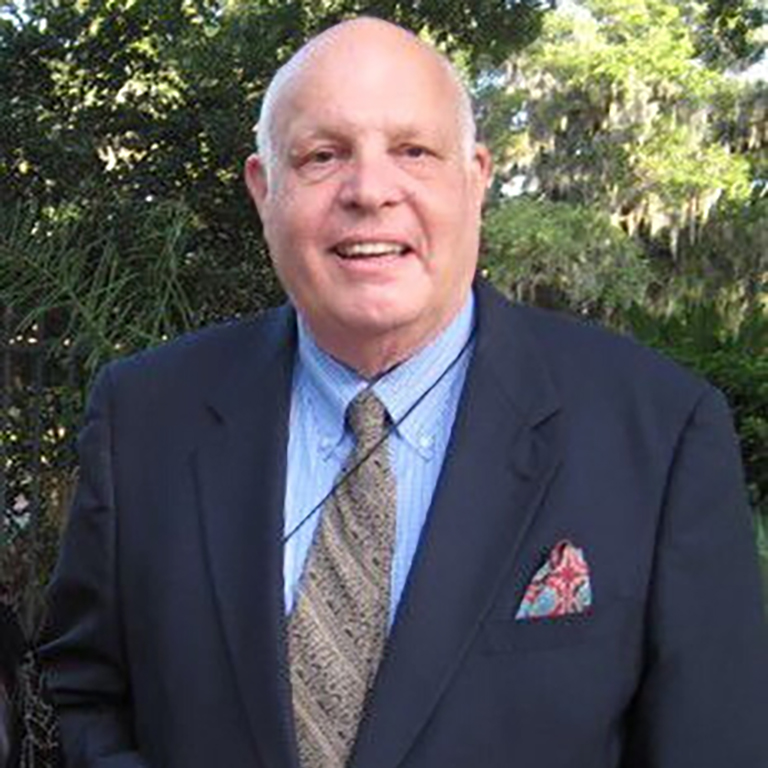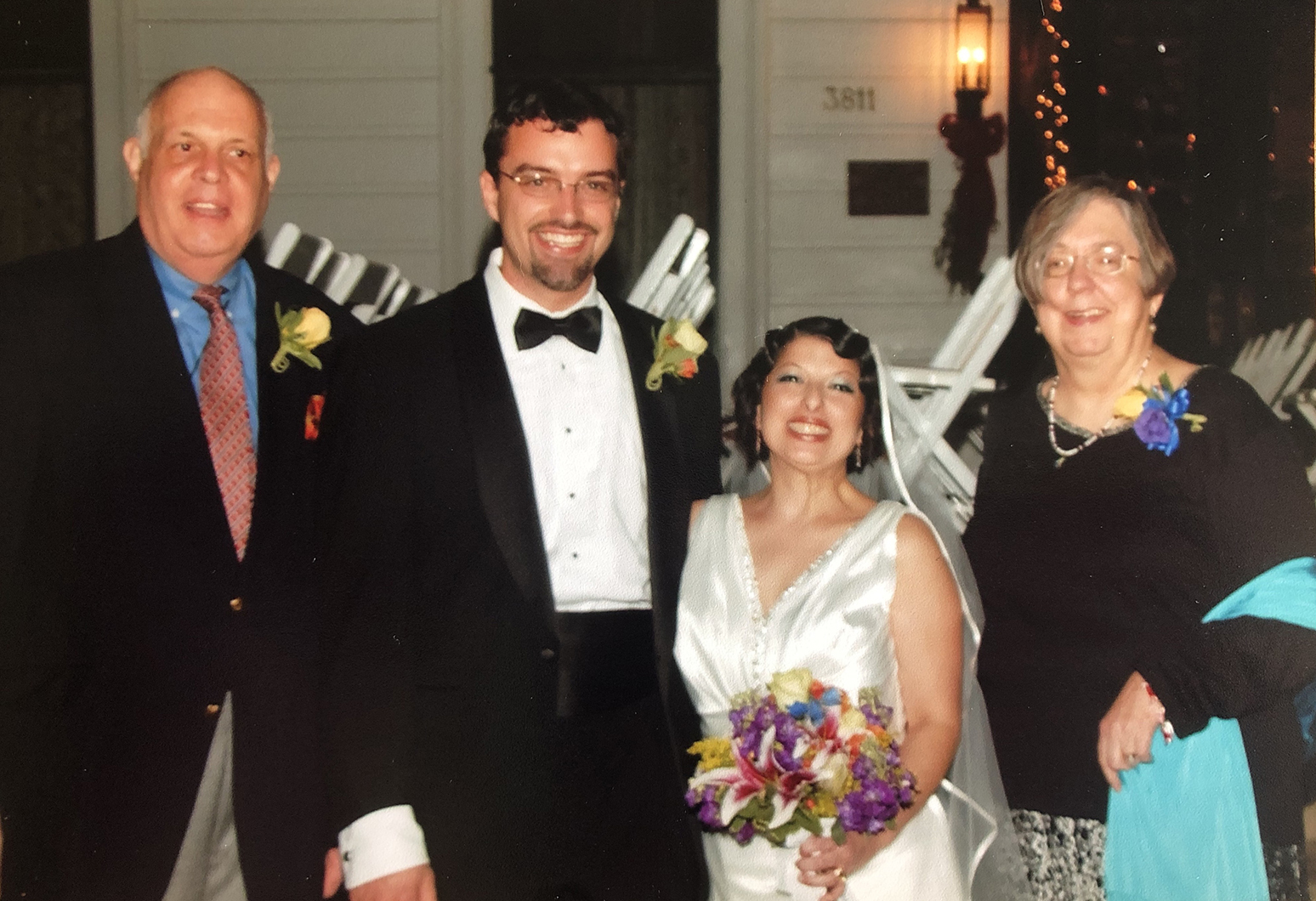We always let Frank put up the sacred ornament because it was part of his history, his story that made every Christmas tree-trimming special for the four of us. We had no family in Louisiana, and for the fourteen years that we lived in Baton Rouge, Frank and Rosan were our family, our touchstones to tradition and love.
Frank de Caro was a true gentleman, scholar, and friend. He nurtured everyone who entered his and Rosan Jordan’s home. No one could beat the yummy sandwiches Frank would make every year for the de Caro’s Mardi Gras party. Just a few blocks away from the uptown parade routes, Frank’s and Rosan’s annual celebrations brought people from all over the state together to reconnect. We would come to share many wonderful moments with Frank and Rosan, including our wedding, numerous birthdays, and countless weekend stays. Frank always had fresh orange juice waiting for us on Sunday mornings, a welcome fortification for the eighty-minute drive home to Baton Rouge.
It is not hard to remember Frank de Caro in his home on Camp street, typing away with two index fingers at one of his manuscripts or editing someone else’s, wearing his signature polo shirt and pajama bottoms. He often woke up early to write. Most visits we would arrive from Baton Rouge around 3 or 4 PM. Frank would be waiting for us at the front door waving, debonair as ever, still wearing PJ bottoms. He probably wrote/edited/reviewed most of the day, every day in retirement. It was not a chore, it was a profession and a way of life for Frank, which made a huge impression on Eric.
Frank and Rosan loved to drive places together. For many years, they drove around Louisiana getting to know many of its unique localities and culture-makers. They took their charge as LSU’s folklorists very seriously. We benefited from this directly one year when we decided to carpool with them to the Louisiana Folklore Society taking place in a small town near Fort Polk. On the way there and back, they knew something about every town. That’s why we always imagined Frank on the road in Louisiana’s backroads with the ever-Texan Rosan Jordan behind wheel of their big boat car, probably a Mercury or a Cadillac.
Frank could seamlessly switch into an ethnographic mode of interacting with others. Even if he knew something about a subject, he would also ask people to explain it to him as if he were hearing it for the first time. This made everyone feel like an expert. No doubt he seduced all of us into this role of interlocutor more than once. But Frank did sincerely believe that everyone was an expert. Even if he was faking it, he listened like you were the only person in the world at that moment. This way of speaking with people, was more than a deft folklorist in their comfort zone. It was a kind of praxis in human interaction that reached far beyond research and blurred the lines between everyday life, performance, and critical reflection. When Rosan says that he treated everyone the same (and he really did), no doubt this very praxis was his secret.
Frank de Caro was a genuinely kind person who showed us how to reach the better parts of ourselves through stories. We remember when he was preparing his memoir, Stories of Our Lives: Memory, History, Narrative (2013). He had on the dining room table an array of amazing old photos of his family, of Rosan, of people he was still trying to figure out how he was connected to through story. We were lucky to get Frank’s first-hand accounts of the thrilling, entertaining, and enlightening narratives that made it into the book. The care with which Frank told his own and other people’s stories was inspiring. He and Rosan often worked together, preparing innovative considerations of tales for future generations that could be found in an array of expressions: folklore, popular culture, and literature. We take their lifelong collaboration as an aspirational lesson in consideration and mutual care.
Frank De Caro is dearly missed and we hope that these snap shots of our memories of him illustrate the depth with which he touched people’s lives.


 The College of Arts
The College of Arts